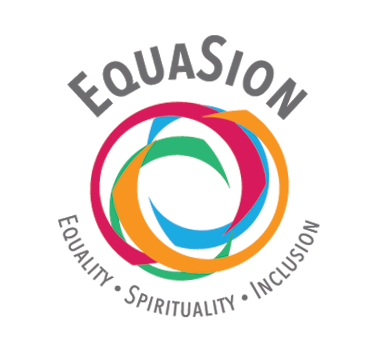September 30, 2021
Dr. Martin Luther King Jr. reminded us that “Justice denied anywhere diminishes justice everywhere.” Events following the murder of George Floyd sparked an optimism that our nation was on the precipice of long overdue racial reckoning, healing and justice for all. The images of protests across the nation showed the power of inclusivity as people from all walks of life – young and old, multi-racial and ethnic, rich and poor, women and men – joined the fight for the cause of racial justice.
However, the pursuit for racial justice was met with sharp resistance. Those opposed to racial equity and justice have sought to use the legal system to perpetuate the exclusion of the voices and perspectives of historically marginalized citizens of the United States of America. Beginning with attempts to suppress the votes of Black, Indigenous and People of Color, many legislators across the nation, including Ohio, have proposed bills to reinforce existing racial hierarchies. Through house bills 322 and 327, some legislators in Ohio seek to deny justice in the classroom by restricting access to honest, inclusive and equitable education. Ohio’s proposed legislation seeks to ban uncomfortable truths of American history by restricting the teaching of “divisive concepts,” which is code for any teaching about race or sex that challenges the dominant narrative. EquaSion is disheartened and concerned by these legislative efforts to white-wash American history. Such efforts deprive students of historical facts, an inclusive education, knowledge of diverse perspectives and viewpoints and the development of critical thinking skills and instead, set the dangerous precedent that the government, not educators, decide what students will learn.
As an organization whose purpose is to promote racial equity and justice, we feel compelled to voice our commitment to honesty in education and to address misconceptions about what the sponsors of house bills 322 and 327 labeled as “divisive concepts”, i.e., critical race theory (“CRT”). Rhetoric surrounding CRT has purposely sought to mislead the general public about the theory. CRT has been mischaracterized as a divisive ideology that views America as a racist nation. Under a broad interpretation of “divisive concepts,” an argument can be made that Ohio’s proposed legislation would ban teaching on concepts such as race, racism, white supremacy, privilege, justice, equity. It could also limit teaching on content such as slavery, civil rights and women’s suffrage.
In reality, CRT originated in the 1970’s as a legal framework designed by a racially and ethnically diverse group of legal scholars. It sought to understand and explain the social construction of race and how race and race subordination shaped the law and society. It demonstrates the complex structural nexus between race and systems within our society, such as education, health, political and criminal legal. And, at its core, it posits that the structural nexus, not individual actors or so-called “bad apples,” perpetuates existing racial hierarchies and determines who has access to advantages in our society. It further seeks to explain how systemic racism is interwoven with sexism, classism, anti-semitism, Islamophobia and homophobia among other exclusionary systems.
The attack on inclusive, honest education cannot go unchecked. The educational system is the marketplace for the exchange of ideas and the sharing of knowledge. Our nation is gifted by its ability to produce more robust knowledge because of its multiculturalism, diverse backgrounds and viewpoints. In an academic setting, the diversity of thought is our greatest treasure. Restricting or censoring the teaching of race, as proposed by the legislation, ultimately deprives students of knowledge and stifles the development of critical thinking skills derived from exploring competing perspectives and substitutes political ideology for academics.
Though framed as an effort to promote unity by banning the teaching of “divisive concepts”, the bills would actually deprive Ohio students of an honest and inclusive education, restricting what they learn about our country’s history, placing government bureaucrats over teachers’ shoulders as censors, and artificially dictating a false and narrow version of the American story.
Ultimately, the lesson learned by schools and students alike will be that difficult topics must be avoided, critical thinking discouraged, and the mistakes of the past denied. That is the opposite of what, as adults, we must model to our young people: that to love our country is to know its history, to seek after the truth of it, and with courage and honesty accept the rose and the thorns—face what is uplifting in our past and what is painful. The blessing and gift of diversity did not come about simply or easily, and to move forward as “a more perfect Union” we must learn truthfully about the shared history that made us what we are. House Bills 322 and 327, if enacted, would make that immeasurably more difficult.
In closing, EquaSion categorically condemns any efforts, legislative or otherwise, that perpetuate racial inequities and injustice. Thank you.
Tammy Bennett, Attorney at Law, Board Member
Tamie Sullivan, Board Member
Jan Armstrong Cobb, Board Member
#########
EquaSion is a Cincinnati-based, nonpartisan civic organization informed by interfaith dialogue that embraces more than 30 faith traditions representing 13 world religions. Its educational programming and advocacy are aimed at promoting inclusion, equity and justice for everyone. EquaSion’s signature programs are the Cincinnati Festival of Faiths and A Mighty Stream: An Interfaith Community of Sacred Activists for Racial Justice
